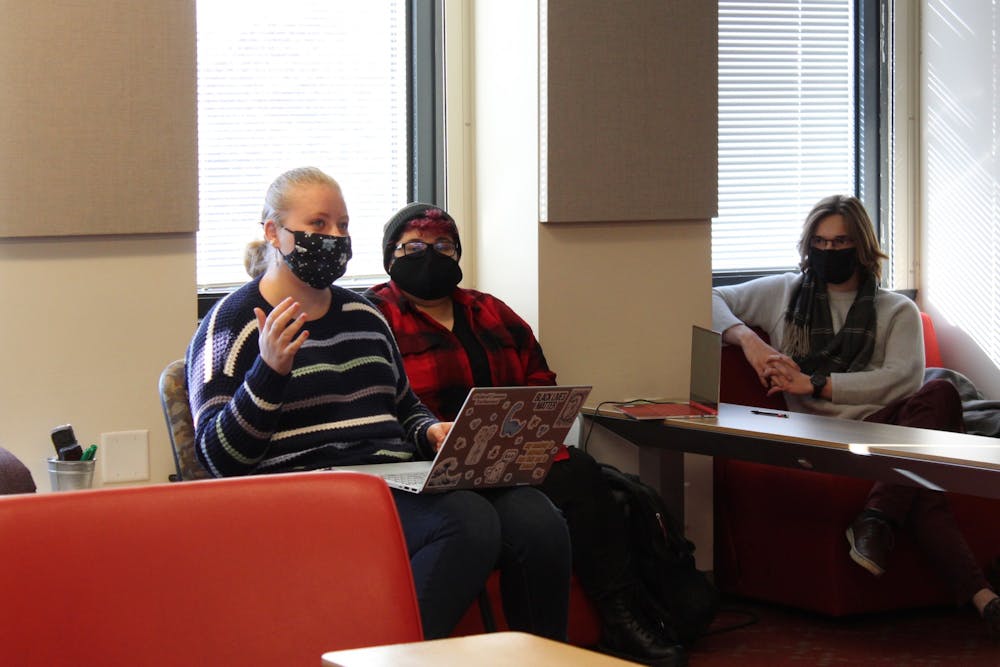Inspired by what he thought was a lack of political knowledge in young people today, Trygve Throntveit, director of strategic partnerships at the Minnesota Humanities Center and co-leader of the Third Way Civics project, was inspired to start a new class that would promote historical and civic learning for undergraduates.
Throntveit, dean's fellow for civic studies at the University of Minnesota College of Education and Human Development, Anand Marri, dean of the Ball State Teachers College, and Dennis Ross, former Republican congressman from Florida’s 12th Congressional District, helped co-pilot the Third Way Civics program.
In January 2020, at a symposium at Southeastern University in Lakeland, Florida, Throntveit, Marri and Ross all wanted to create a program “to help rebuild our national civic fabric by starting at a place that we think occupies a really strategic position in the overall institutional fabric of society, which is higher education,” Throntveit said.
Through their collaboration, Third Way Civics was born. The program got its start with a grant from the Teagle Foundation, which provides support for liberal arts education programs. With this funding, Third Way Civics could start implementing new civics courses in universities nationwide, with the pilot program starting at Ball State and Southeastern University. After six months of planning the curriculum, Ball State faculty members were ready to start offering the class to students.
“I think the idea behind the class is to really kind of let students discover their own sort of sense or idea of what it means to be a good citizen, and then, to understand how our ideas about citizenship have evolved and changed in the United States,” said David Roof, Ball State associate educational professor.
The Ball State class is a special section of EDFO 420 and consists of 20 students, mostly secondary education majors, like senior Melea Shockney. Shockney originally didn’t know she had signed up for the Third Way Civics class due to the class name not being listed on the self-service banner, but she remained enrolled after falling in love with the class.
“It's seriously been so cool,” Shockney said. “Every single class is a discussion — your voice is heard. Every class, [there are] small groups, partners — we write ideas out on boards and share them with the class.”
While the class revolves around discussions, Roof said it also heavily relies on readings to facilitate important conversations surrounding civics.
“For example, we had a debate over whether or not the government should primarily be responsible for the well-being of citizens or whether citizens should be responsible for their own well-being,” Roof said. “The idea was to use the readings to support those positions — the students prepared their remarks, and then, they debated the two different positions. We [also] took some time to reflect and prepare rebuttals.”
While the class is starting some important conversations at Ball State, the Third Way Civics program still has a long way to go, Roof said.
“I think, right now, that early phase is really just trying to kind of get feedback on the project and sort of plot a path forward,” Roof said. “I think, ideally, the hope is that this will become a good model that can be used in universities in different contexts around the country.”
With the help of grants from organizations like the Teagle Foundation, Marri said he hopes to begin expanding Third Way Civics to other universities. In January, Roof, Thorntveit and Marri plan on attending the annual meeting of the Association of American Colleges & Universities. At the conference, they will hold a one hour discussion about the Third Way Civics program. In addition to attending conferences, they’re also working with different publications.
“We're going to apply more and larger grants to further implement [this program] beyond this year at Ball State and Southeastern University so that we are able to get it across all the states in all parts of Minnesota, and then, start trying to go state by state,” Marri said.
As the program expands, so does the speculation behind the unique name.
“At the beginning, I was saying we wanted to develop and demonstrate the value of a type of civic learning that transcended debates between traditionalists and progressives,” Thorntveit said. “So one of the discussions is, do we need informed citizens or do we need empowering citizens? Well, we think you can take a path between those two alternatives.”
Contact Shwetha Sundarrajan with comments at ssundarrajan@bsu.edu or on Twitter @fengshwe.





